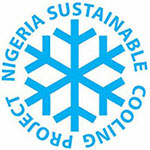The National Council on Climate Change (NCCC) has said it is considering the introduction of a carbon tax targeted at luxury items in the energy sector, in furtherance of efforts towards achieving Nigeria’s Nationally Determined Contributions (NDCs) by the year 2030.
The director-general of NCCC, Dr. Salisu Dahiru made this known during a meeting with members of the ‘Scaling Up Energy Efficient and Climate-Friendly Cooling in Nigeria’s NDC Revision’ project team at the council’s headquarters in Abuja.
He lamented that Nigeria’s window to fulfil its ambitious unconditional greenhouse gas (GHG) emission reduction targets, which encompass a 20 per cent reduction, and conditional reduction targets of 47 per cent below business-as-usual (BAU) levels by 2030, is rapidly narrowing, hence the importance of the collaboration between the NCCC and the project team to raise awareness about energy efficiency best practices among Nigerians.
This, he noted, was essential to achieve Nigeria’s NDC target of an annual 2.5 per cent reduction in energy intensity.
Dahiru also noted that if compliance with these standards is not observed, the council will take stringent regulatory measures.
“Though awareness creation is crucial, it’s often the case that individuals feign ignorance. Therefore, we must ensure compliance through enforcement. To this end, in addition to regulation, we are considering the implementation of a carbon tax. This tax will be levied based on established standards. For instance, air conditioners (ACs) with a higher energy efficiency rating, such as five-star models, will incur lower or zero tax, while those with a lower rating will face a higher tax burden. This carbon tax will be applied to items like refrigerators,” Dahiru explained.
He clarified that the carbon tax initiative serves a dual purpose – generating revenue and driving more decisive action to meet Nigeria’s NDC target by 2030. With only seven years left for the country to achieve this goal, Dahiru acknowledged the urgency of the situation and the magnitude of the task at hand.
The director-general further assured that NCCC possesses the necessary policy framework, institutional structure, and legal backing to support and enforce the project objectives.
“The focus of this project is on energy consumption and it will undoubtedly yield a substantial amount of data. We can analyse the carbon equivalent of various refrigerants, calculate GHG emissions reductions resulting from efficient air conditioners, and consequently project the impact on our NDC achievements. Collaboration is paramount and your advantage lies in the fact that the Climate Change Act empowers NCCC to formulate regulations. We will rely on the data you provide, and ultimately, the regulations pertaining to climate pollutants will be collaboratively developed,” he added.
Earlier, the project director, Engr. Okon Ekpenyong expounded the project’s primary goal, pointing out that the giving the escalating energy consumption by current ACs in the market, the project seeks to expedite the transition to more energy-efficient air conditioners.
He highlighted that a significant portion of ACs in use still employ hydrochlorofluorocarbon (HCFC) refrigerants, which are harmful to the ozone layer.
Ekpenyong said the project’s mission is to work closely with relevant agencies to raise awareness and promote the shift from inefficient and environmentally harmful air conditioners to more efficient and climate-friendly models.
“This will involve the development of Minimum Energy Performance Standards (MEPS) for air conditioners, which will be enforced by the Standards Organisation of Nigeria (SON),” he added.
Ekpenyong pointed out that the existing National Cooling Action Plan has an inherent gap within its cooling chapter and that the project was crafting a complementary document to address this void, which will enhance the plan’s efficacy.
“Our efforts have already borne fruit as the inclusion of cooling in our NDCs has been established. This project is even referenced in the NDC implementation plan under chapter 5, specifically focusing on ozone-depleting substances (ODS),” he said.
Ekpenyong added that the overarching objective of the project is to significantly reduce energy consumption and atmospheric emissions, a mission that aligns seamlessly with the NCCC’s mandate. The ‘Scaling Up Energy Efficient and Climate-Friendly Cooling in Nigeria’s NDC Revision’ project, initiated in February 2022 and formally launched in March 2023, operates in collaboration with the Energy Commission of Nigeria (ECN), UNEP, Clean Cooling Collaborative, and United for Efficiency (U4E). Over the course of three years, this initiative aims to revolutionise Nigeria’s cooling landscape by accelerating the adoption of energy-efficient practices and fostering a more environmentally conscious approach to cooling solutions.


